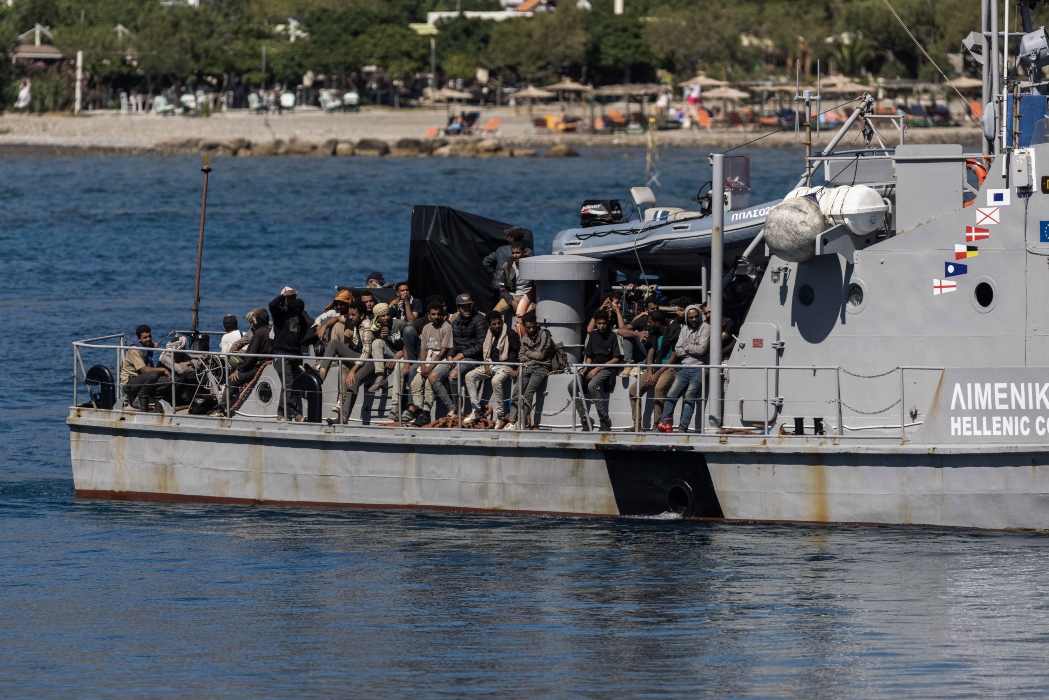Greece aims to implement Europe’s toughest framework for illegal migration, with those not entitled to asylum facing imprisonment or deportation, Minister of Immigration and Asylum Thanos Plevris announced in Parliament today.
Addressing questions from Dimitris Natsios of the “Niki” party and Alexandros Kazamias of Plefsi Eleftherias, Plevris outlined measures to curb rising migratory flows, particularly to Crete.
New Measures and Recent Amendment
Plevris defended a recent amendment suspending asylum applications, which he said has already reduced arrivals to Crete, though weather conditions also played a role. “Since the amendment passed last Wednesday, there have been no new arrivals in Crete,” he stated, attributing the decline to the amendment, diplomacy, and weather. A forthcoming bill will further strengthen enforcement, ensuring illegal entrants are detained in closed facilities for up to 12 months and face expedited deportation. “Those who enter illegally will either return voluntarily or go to prison,” Plevris emphasized.
The new bill introduces a criminal offense for refusing deportation after illegal entry, carrying a non-suspended prison sentence of up to five years. Administrative detention of up to two years will apply to those without documentation, and electronic monitoring will track individuals pending deportation. Plevris also announced financial audits of NGOs working with the ministry and a review of migrant benefits to deter illegal entry.
Data on Asylum Applications
In the first half of 2025, Greece processed 27,425 asylum applications, rejecting 15,041 at the first instance and 4,760 at the second. Of these, 1,323 applications were from unaccompanied minors and 4,816 from other vulnerable groups. Only 26 migrants were returned to Greece from other European countries during this period. Plevris noted a 7% drop in migratory flows compared to the first half of 2024, with targeted measures addressing Crete’s challenges.
Opposing Views in Parliament
Natsios criticized the government’s border security as inadequate, accusing it of enabling an “invasion of illegal immigrants” and risking Greece’s transformation into “Europe’s human warehouse.” He described the asylum suspension as “hypocritical half-measures” and demanded details on the Navy’s role in border surveillance, data on asylum rejections, and investigations into vessels transporting migrants near Crete. Natsios also called for restricting NGOs and repealing a decree allowing small migrant facilities in rural areas, claiming it promotes “colonization.”
In contrast, Kazamias accused Plevris of planning to “turn Crete into Gaza,” criticizing the government’s harsh stance. Plevris rejected both critiques, affirming Greece’s border protection efforts, including Navy and Coast Guard operations, as seen in the 2020 Evros crisis. He emphasized Greece’s European advocacy since 2019, noting that its positions are gaining traction.
Challenges in Deportation
Plevris acknowledged difficulties in forced returns, which require cooperation with countries like Pakistan, Bangladesh, and Egypt. Greece is expanding its list of safe countries to limit asylum eligibility and pursuing more bilateral agreements. To boost voluntary returns, Plevris stressed that illegal entrants will lose benefits and freedom. “The first person sentenced to three or four years will be offered a choice: prison without parole or voluntary return,” he said, citing Prime Minister Kyriakos Mitsotakis’ directive to prevent Greece from becoming an “open vineyard.”
Hybrid Threats and Border Security
Natsios raised concerns about a “hybrid war” from Turkey, urging the government to intercept large vessels transporting migrants. Plevris confirmed that the Navy and Coast Guard are actively protecting borders and that Greece will seek European assistance if needed. He stressed compliance with European frameworks while prioritizing deterrence.
